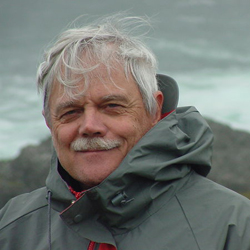Richard LeBlond
Provincetown, at the tip of Cape Cod, has been an artists’ colony since the late 1800s. I moved there in the 1970s hoping to become a writer, without realizing hope had nothing to do with it. In the early 20th century the town had nurtured writers like John Dos Passos, Edmund Wilson, and Eugene O’Neill. The first-ever production of an O’Neill play, Bound East for Cardiff, happened on a Provincetown wharf in 1916.
When I came to the schizophrenic town – serene in winter, a tourist madhouse in summer – Pulitzer poets Stanly Kunitz and Mary Oliver were living there. Gregory Corso, the first Beat poet to be published, could regularly be seen in a Provincetown bar, even during the day. There always seemed to be an empty stool next to him, but I never had the nerve to go sit on it. I couldn’t help but look at him through the open door whenever I passed by. Along with the other Beats, Corso was like a religious relic.
But in that era, the literary elephant in Provincetown was Norman Mailer. Now that he is dead, I can drop his name with impunity. Although Mailer was a resident of New York City, he spent a good part of every year in the seaside town, where he owned a house. I eventually encountered him in casual social situations, but the tiny incident I am relating here involves a time before then, when he was just one of the world’s foremost authors.
In the summer of 1975 the two of us lived in separate apartments in the same waterfront house, he on the second floor, with me on the first floor directly below. Either he had not yet bought his house, or it was being used for another purpose, perhaps by one of his several ex-wives, who wouldn’t let him in.
At the time, I was doing my best to act like a writer, but really wasn’t producing much more than bad haiku, which is surprisingly easy to do. And the time spent in the apartment became a nightmare, because Mailer was assiduously applying himself upstairs, writing daily and at length, exposing the sham of my pretensions.
Although his obituary said he eschewed the typewriter and wrote by hand, he was prolifically typing something overhead, maybe a submission manuscript. And the endless tap-tap-tap produced the same effect as Chinese water torture in the apartment below, driving me out into the streets of Provincetown until the wee hours of the morning.
It took decades for me to accept that I was not going to be the writer I wanted to be. I wish I could say it was Mailer’s fault, but like hope, he had nothing to do with it. Not until after I retired did I find, or become comfortable with, my own voice. The epiphany came as I sat on a toilet in, fittingly, Provincetown, where I was visiting a friend on my way home to North Carolina from an adventure in Newfoundland. She kept a pile of literature on the commoner’s think tank behind me. In the pile was a catalog of courses for “Campus Provincetown,” a by-the-seat-of-your-pants education effort so typical of that town. Among the offered courses was one titled “Creating Conditions for Flow,” on overcoming artistic blocks. The brief description said “…when you are in ‘flow,’ you are highly productive and intensely concentrated on your work – so much so that you may lose all track of time. In flow, your inner critic is silent….”
That last phrase produced the eureka moment. I now see the inner critic for the stifling tyrant he was. He remains one of the voices in my head, but is no longer chairman of board.
 Richard LeBlond is a retired botanist living in North Carolina. The majority of his working career focused on the natural environment. He also worked for newspapers and a magazine as an editor and columnist at various times before 1990. Since his retirement, he has been writing about life experiences and about travels to eastern Canada and the western U.S.
Richard LeBlond is a retired botanist living in North Carolina. The majority of his working career focused on the natural environment. He also worked for newspapers and a magazine as an editor and columnist at various times before 1990. Since his retirement, he has been writing about life experiences and about travels to eastern Canada and the western U.S.